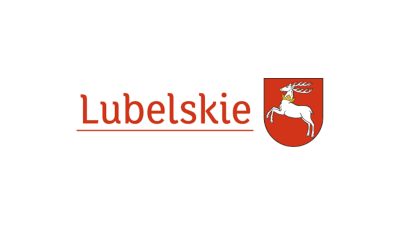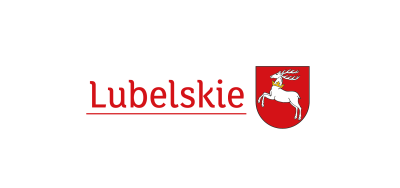
Marshal Office of the Lubelskie Voivodeship is a regional authority responsible for supporting the activities of the Board – the executive body of the region, the Regional Parliament (Sejmik) and the Marshal. It also performs activities encompassing the preparation of regional development strategy and the development and implementation of regional policy measures.
Lubelskie Voivodeship is the third-largest (25,150 km2) and eighth-most-populated (2.15 million) voivodeship in Poland. Its investment attractiveness is mainly the outcome of its:
- favourable geographical situation
- climatic and soil conditions
- rapidly growing economy
- research capacities
Thanks to neighbouring Belarus and Ukraine, the voivodeship is a natural link between the economies of Western and Eastern Europe, at the same time demarcating the European Union border. The favourable geographical situation, the convenient infrastructure of border crossings, modernised main roads, and dynamic economic cooperation with partners from across the eastern border, are the main strengths of this investment-friendly region. Other attractive features of the region include: the broad range of investment areas, the systems of incentives and local investment allowances, and the authorities’ openness towards investors.
An unquestionable strength of the Lubelskie Region is insolation, the highest in Poland, which is conducive to the broadly understood agricultural production and the generation of solar energy. After Upper Silesia, the Lubelskie Voivodeship is the country’s second major coalfield. There are also small deposits of crude oil, natural gas, marl, and limestone, whereas common minerals are natural aggregates, loamy raw materials, loess clay, loam, carbonate resources, and peat. Thanks to its geographical situation and favourable geographical and natural conditions, the Lubelskie Region demonstrates high potential in terms of producing bio-fuels and developing green energy (e.g. high insolation mentioned above).
S3 Strategy
The current version of the regional Regional Innovation Strategy of the Lubelskie Voivodeship 2030 was adopted in March 2021 by the Regional Parliament (Sejmik). It defines the directions of conducting innovation policy in the region based on the internal scientific and technological potential of the region and in this respect is a development and specification of the Development Strategy of the Lubelskie Voivodeship until 2030.
The need to change the existing areas of smart specialisation resulted directly from the entrepreneurial discovery process carried out in the region and a number of activities undertaken. The results of the work undertaken are the updated areas of smart specialisations:
- Quality food
- Green economy
- Healthy society
- Digital society
- Material technologies, industrial and logistic processes
The role of the regional government is to animate activities in this area, which will contribute to the commercialisation of knowledge and the implementation of innovative solutions to the economy of the voivodship.
Latest Updates
- By Lucy Hammond
Lubelskie region is looking for cooperation in the area of bioactive substances of natural origin
Lubelskie Voivodeship, continuing its work on regional ecosystem of life science as a part of the ELISE Interreg Europe project, is looking for partner regions to jointly apply to the Interreg Europe programme, the call for which will run from 15 March until 9 June 2023.
- By Anonymous
Search for Polish partners - microplastics COST proposal
Dr Daniel Hill, a research fellow at Aston University (Birmingham, UK) is preparing a COST proposal linked to microplastics for the 20 October deadline. He is looking for Polish companies representing the water sector who would be interested to cooperate in the frame of the project. Please express your interest by 5 September.
- By Gaia Ialisa Marotta
Looking for partners for INTERREG Europe
Lubelskie Voivodeship a policy responsible authority is looking for partners to join a consortium in the new upcoming INTERREG Europe Programme and would be interested in cooperation among the following objectives: • Research and Innovation capacities, uptake of advanced technologies; • Sustainable growth and competitiveness of SMEs and skills for industrial transition & entrepreneurship.


